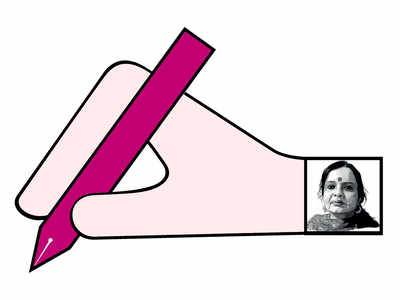
The equidistance principle in politics
by Radhika RamaseshanThe BJP has transformed the equidistance principle into a canon and covenant in politics. With parties increasingly adopting it as a means to buy peace with a bullying Centre or save the neck of leaders who are in a pickle, being equidistant doesn’t necessarily put a party in a non-combatant zone. It doesn’t always allow a leader to conveniently squirm out of a situation that demands taking a position. In domestic politics, neutrality is non-existent. You are with the ruling order or against it. The middle-ground can become a booby trap unless a leader is endowed with exceptional navigational skills; in India we have only one who has not found a peer. The growing ranks of equidistant “netas” have shrunk the Opposition’s space to coalesce into a front and fight the ruling party.
Mayawati took the principle to another level, making one wonder if she wilfully abandoned the legacy of her mentor, Kanshi Ram. It took the BSP chief over a month to break her silence on the reverse migration of workers from Mumbai, Delhi, Chennai, Bengaluru, etc. When she spoke there was barely a trace of empathy for the distressed. Mayawati thrust herself into the issue only after Priyanka Gandhi Vadra tried to ferry the migrants to Uttar Pradesh from Rajasthan and was thwarted by Yogi Adityanath.
No, she did not express her solidarity with a distraught Priyanka, but castigated the Congress for “playing politics”. Mayawati singled out the Congress as the “real culprit” for the travails of the migrants because having ruled for years, she asked why it couldn’t create jobs in the villages and provincial towns. It was a legitimate question that ought to be raised in a macro context, but coming from the leader of an important party, didn’t it help deflect censure and culpability from the Centre’s inability to anticipate the enormous human cost that the lockdown entailed? Honestly, is the Congress – a party that was voted out in 1989 and has not recovered since – the Goliath that Mayawati wants to demolish in UP? Is she seeking out the BJP’s hand before the next UP election? Is it the fear that the CBI might tighten its noose around her in one or the other alleged scams implicating her? Did she forget how Kanshi Ram had campaigned in the 1993 UP elections with the Constitution in hand as the only totem because he believed that by demolishing the Babri mosque, the BJP had violated everything Ambedkar’s document had consecrated? Mayawati consigned this part of the BSP’s legacy to the dustbin long ago, in 1995 to be precise, when the BJP helped install her as the CM. She’s not maintaining equidistance. Mayawati is trying hard to warm up to the BJP, convinced it’s here to stay in Delhi and probably Lucknow.
Expectedly, neither the BSP nor its twin, the Samajwadi Party, showed up at Sonia Gandhi’s video conference that tried to bring the Opposition together. What’s with Akhilesh Yadav that he’s trying hard to maintain equidistance from the BJP and the Congress except for the CBI bogey? Or the classic socialist throwback to “anti-Congressism” that brought the Samajwadis and the BJP together at least twice in recent history? Akhilesh doesn’t seem burdened by the past. He has an eternal fear that the Congress will run off with the Muslim votes that his father, Mulayam Singh Yadav, had nurtured since 1992. Does he have reasons to be scared? Yes, because Akhilesh and the SP did not take a stand against the brutalities unleashed against Muslims by the UP dispensation, following the CAA protests. Inheritances, financial or political, never last forever.
The textbook practitioner of equidistance is doubtless Naveen Patnaik, although his nuanced “neutrality” has tilted so perceptibly towards the BJP that his former associate, Baijayant Jay Panda, who had hoped to hit the jackpot when he joined the BJP, is left high and dry whenever Narendra Modi goes soft on Patnaik. The “Patnaik principle” is simple: be nice to the party at the Centre to get things going in Odisha and get combative in the elections.
So, he endorsed the CAA bill and the reading down of Article 370 without paying a political price. Odisha was in fiscal doldrums after May 2019’s Cyclone Fani. Patnaik was cashstrapped to fund his ambitious welfare schemes. He agreed to the Centre underwriting part of the KRUSHAK project for the farmers, knowing well that the BJP was adept at stealing the credit in an election. YS Jaganmohan Reddy and Edappadi K Palaniswami are the other votaries of the BJP brand of equidistance.
Arvind Kejriwal might be the new and a surprise entrant to the club because, like Patnaik and unlike Mamata Banerjee, he learnt that unceasing confrontations with the Centre will not help. Not even with two serial wins against the BJP. The difference is while Patnaik instinctively opted to embrace the equidistance principle, with Kejriwal it was a baptism by fire. The Congress barely survives in Delhi. In an election, Kejriwal will have to fight the BJP, but for the moment he’s called an armistice.